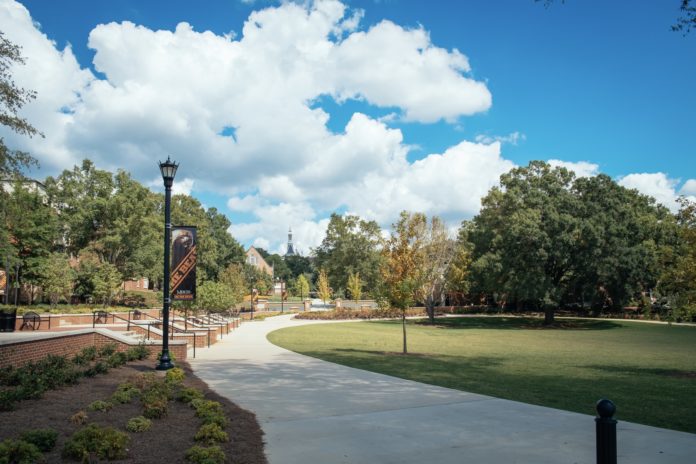By Jamie Dickson (CLA '05)
Mercer's Board of Trustees recently approved three new degree programs in the College of Liberal Arts: the Bachelor of Fine Arts in Art; the Bachelor of Science in Neuroscience; and the Bachelor of Arts in Criminal Justice.
The Bachelor of Arts in Fine Arts degree program consists of 75 hours of study in studio art and art history combined with the general education requirements of the College of Liberal Arts. Students will undergo regular critiques, which provide the opportunity to hone skills in a range of media.
Foundations and art history courses will be taught on the main campus, while junior and senior studios are to be housed in an historic building in downtown Macon. The renovation of this building will also create a 1,800-square-foot gallery, which will be utilized by students, faculty, and the Middle Georgia community.
“The Bachelor of Fine Arts will allow Mercer to reach a wider group of potential students interested in creative expression and problem solving,” said Eric O'Dell, assistant professor of art. “We live in the most visually driven age in history and this program will develop critically trained graduates to fill the needs of a dynamic job market.”
The Bachelor of Science in Neuroscience consists of a minimum of 73 hours of study and is a partnership between the biology and psychology departments. It gives students an opportunity to explore neuroscience from the cellular, systems and behavioral levels. The required courses will also foster skills in critical thinking, science, writing, research, and oral communication and will help prepare students who plan to pursue a graduate program in neuroscience or related programs, a health-related profession, or a career in science education.
Dr. William Jenkins, associate professor of psychology, is the co-chair of the psychology department and director of the neuroscience program. He said the new major “places Mercer on par with similar institutions.”
“The major strengths of the neuroscience program include its interdisciplinary approach and strong emphasis on research,” he said. “Students majoring in neuroscience will be well-prepared and well-positioned for future studies either in graduate or medical school.”
The criminal justice major (36 hours) and minor (21 hours) include courses within the social sciences and humanities and requires classes from the disciplines of psychology, political science and sociology. Additionally, students majoring in criminal justice must complete two social science research courses, where they will learn the methods used to analyze crime.
The criminal justice degree program provides a strong foundation for graduate school and careers in criminal justice, including employment in agencies such as the FBI, GBI, DEA, Homeland Security and ICE. The major also prepares students for professional degree programs in fields such as law, criminology, law enforcement, and public affairs.
“The new interdisciplinary Criminal Justice major and minor is unique due to its interdisciplinary approach that provides students with a strong liberal arts background,” said Dr. Fletcher Winston, associate professor of sociology and chair of the Department of Sociology. “Students are required to complete criminal justice courses from a variety of disciplines, including sociology, psychology, and political science as well as electives from philosophy, Christianity, or African studies.”









